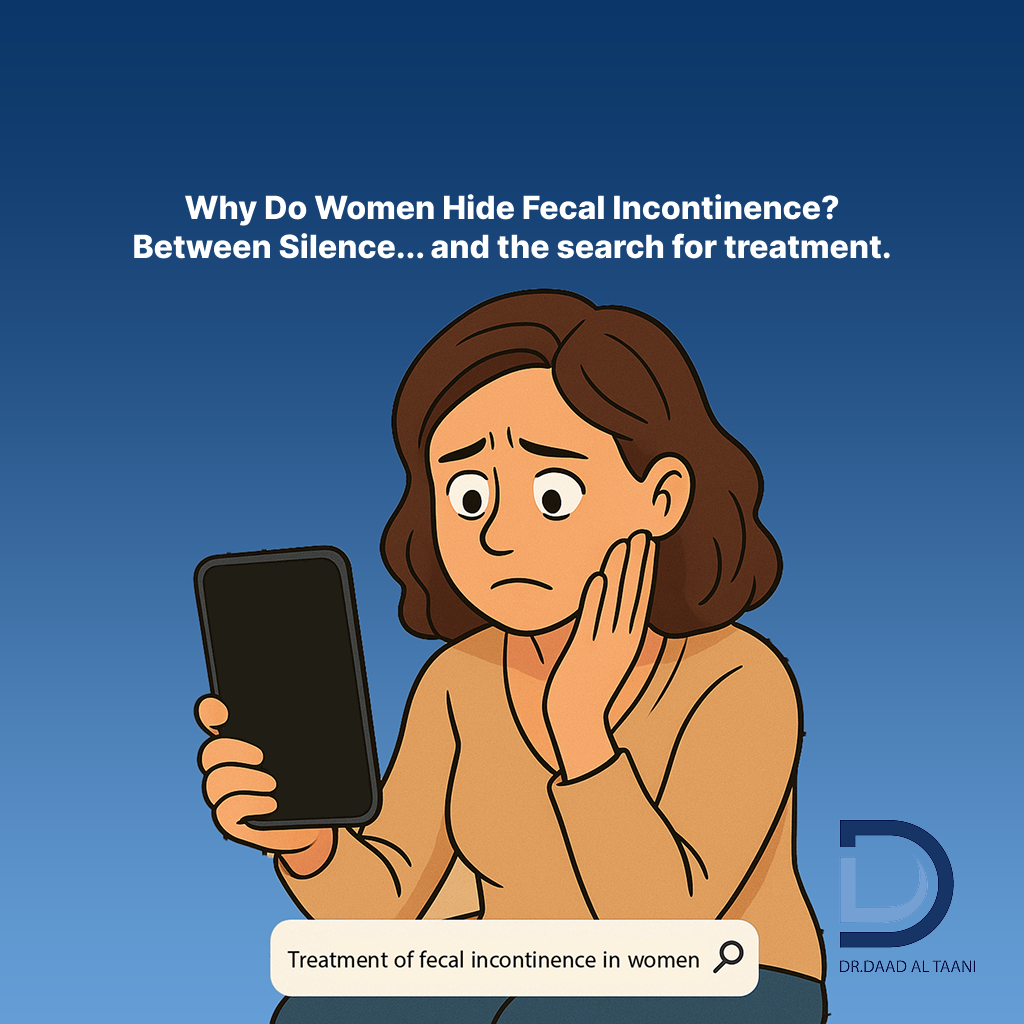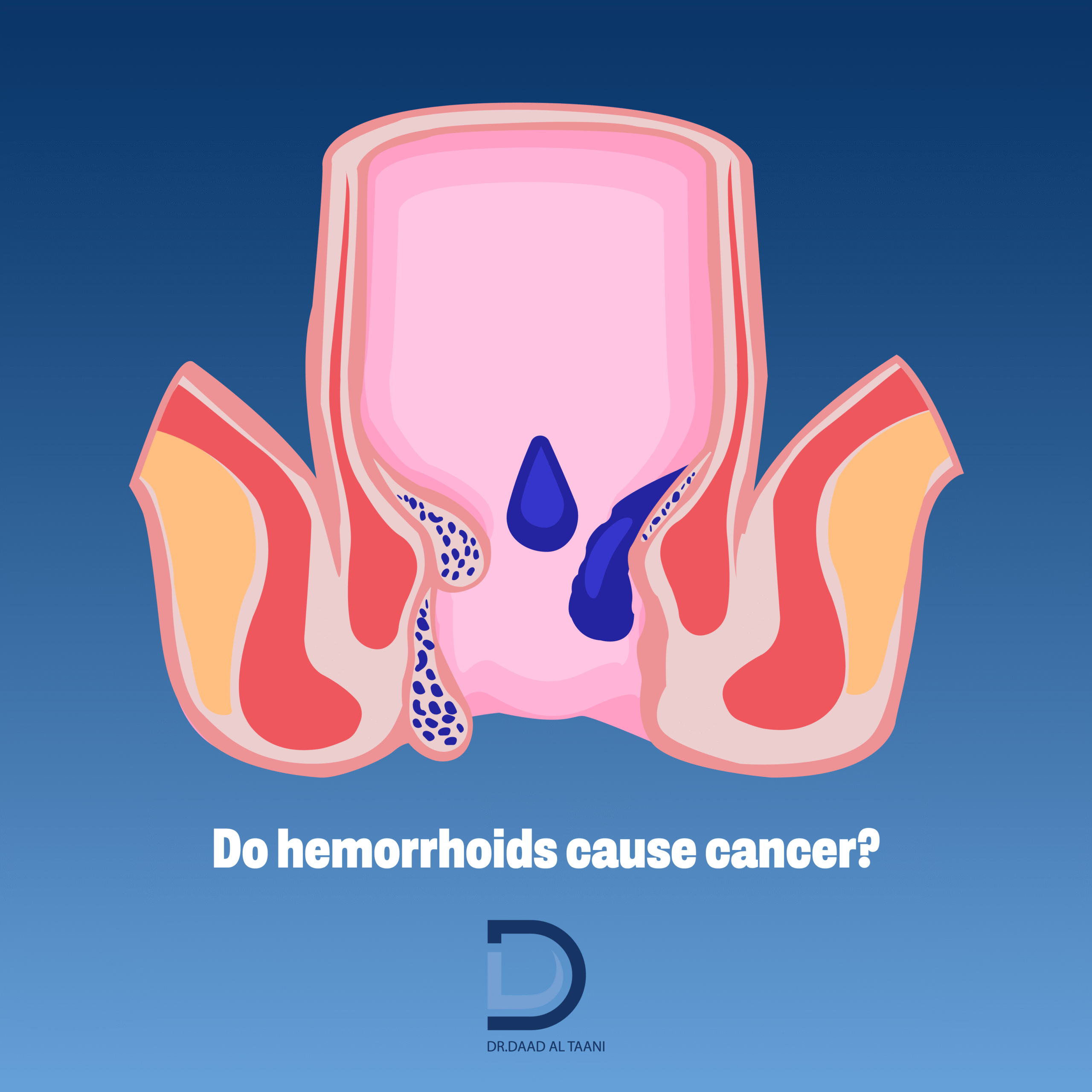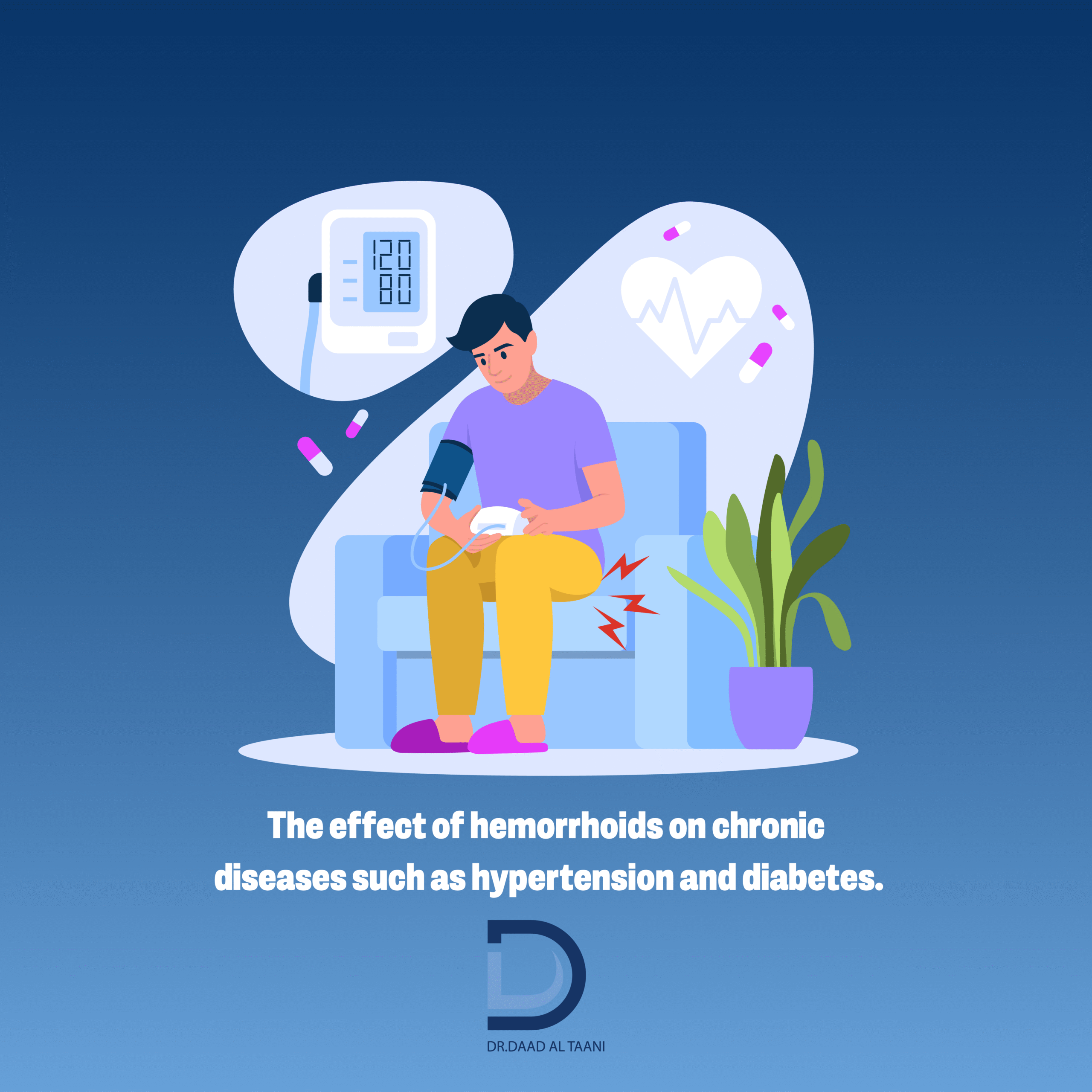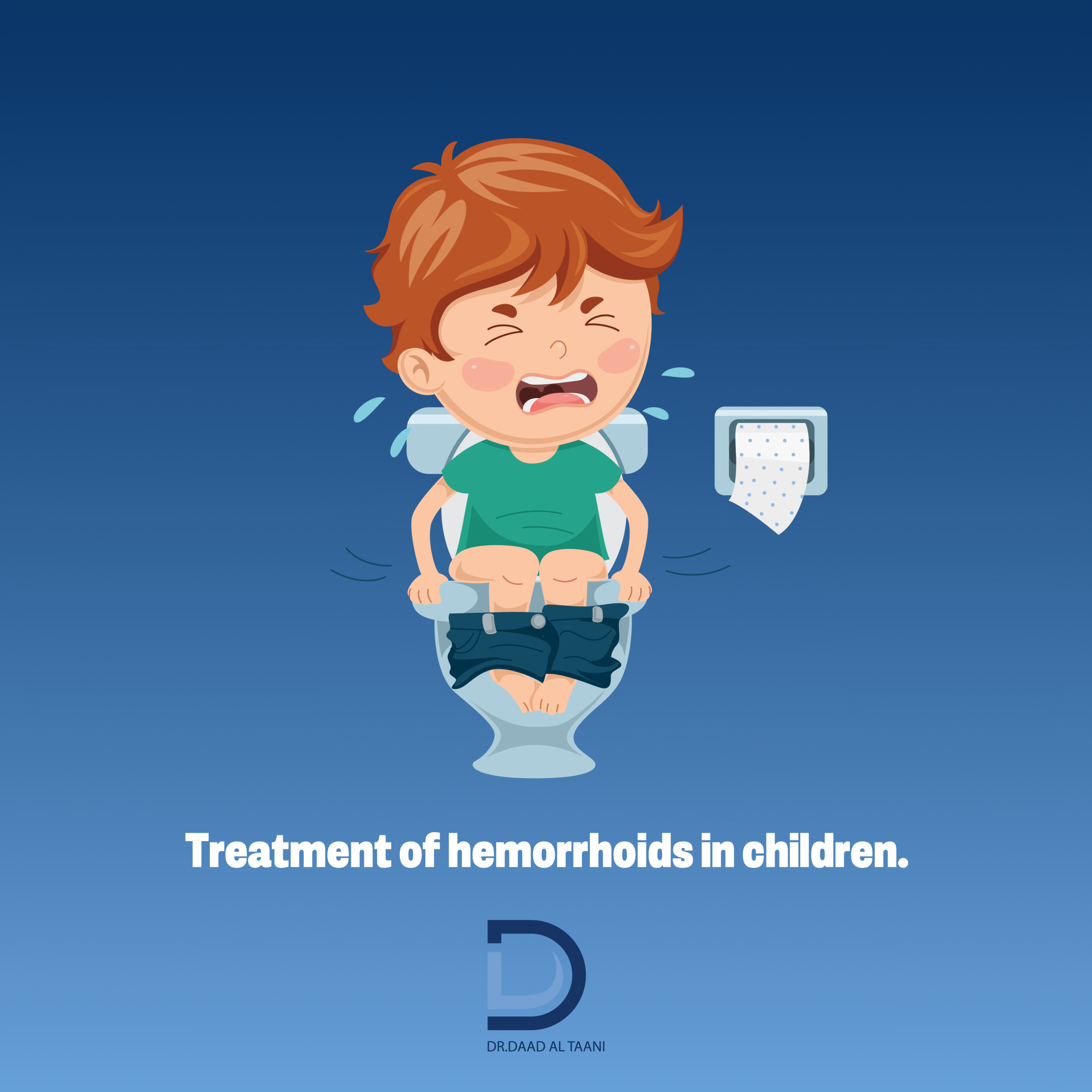Stress and anxiety are often overlooked yet significant contributors to digestive issues, especially constipation. Many patients report persistent constipation that doesn’t improve with dietary or medical changes—until their mental health is addressed. In this article from Dr. Daad Al-Taani’s clinic, we explore how emotional stress impacts bowel movements and what you can do to restore your gut health naturally and effectively.
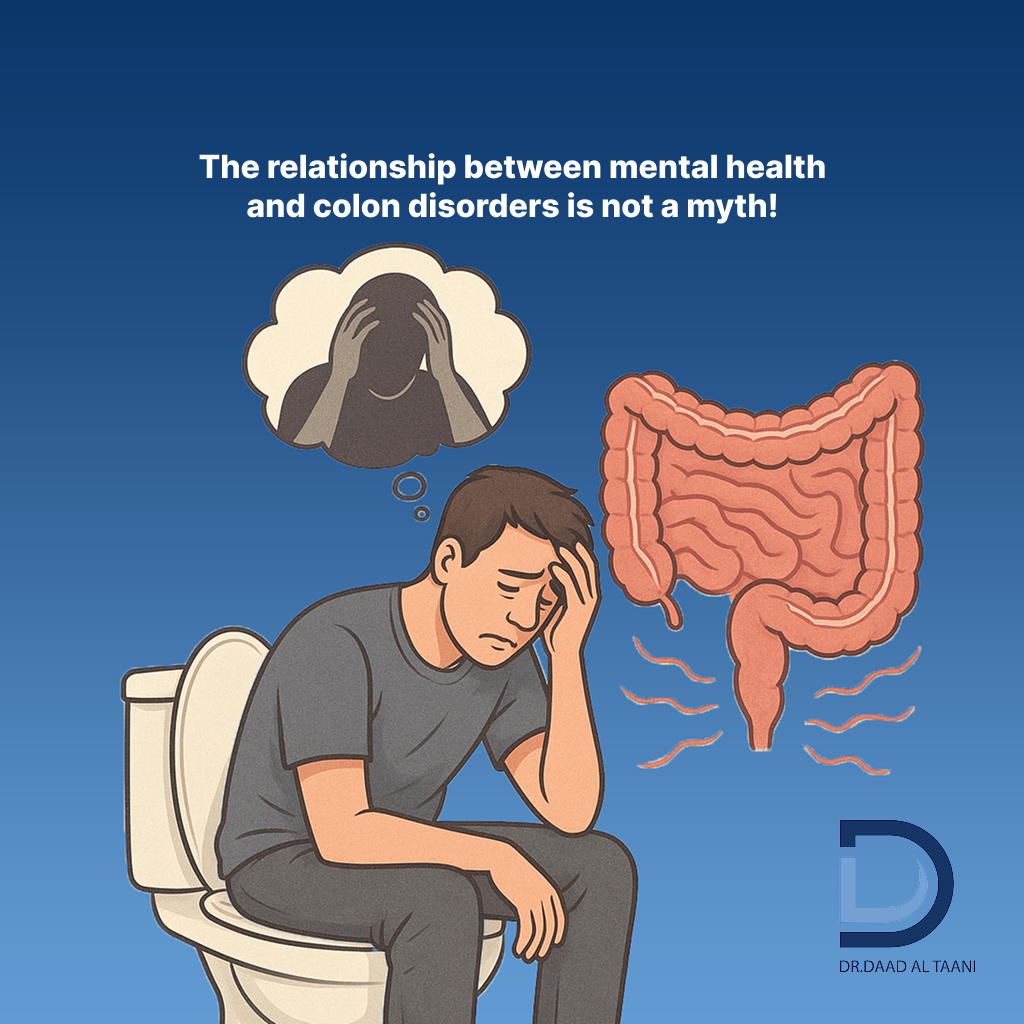
Does Stress Cause Constipation? Exploring the Link Between Mental Health and Gut Health
Table of Content
- 1. What Is Constipation?
- 2. How Does Stress Affect the Digestive System?
- 3. Common Symptoms of Stress-Related Constipation
- 4. Stress and Irritable Bowel Syndrome (IBS)
- 5. When to Suspect Stress as the Cause of Constipation
- 6. How to Manage Stress-Related Constipation
- 7. Why Do We Focus on Mind-Gut Health at Dr. Daad Al-Taani’s Clinic?
- 8. Final Thoughts: Listen to What Your Gut Is Telling You
What Is Constipation?
Constipation is defined as infrequent or difficult bowel movements, often involving hard, dry stools and straining. Common physical causes include:
- Low fiber intake
- Dehydration
- Lack of physical activity
- Certain medications (e.g., antidepressants, painkillers)
But beyond physical factors, psychological stress can significantly influence bowel function and may be the hidden root of chronic constipation.

How Does Stress Affect the Digestive System?
1. The Gut-Brain Connection
Your digestive system is controlled by the enteric nervous system, which is deeply connected to the brain via the vagus nerve. When you’re stressed, your body releases stress hormones like cortisol and adrenaline, which can:
- Slow down gut motility
- Cause spasms in the colon
- Disrupt the natural rhythm of bowel movements
2. Muscle Tension and Pelvic Floor Dysfunction
Stress often causes muscle tension, including in the abdominal and pelvic muscles. This tension can make it harder for stool to pass smoothly, leading to:
- A feeling of incomplete evacuation
- Difficulty pushing during bowel movements
- Anal discomfort or tightness
Common Symptoms of Stress-Related Constipation
- Infrequent or hard bowel movements
- Bloating and abdominal discomfort
- Straining or painful defecation
- Feeling like the bowel is never fully empty
- Co-occurring anxiety, restlessness, or sleep problems
Stress and Irritable Bowel Syndrome (IBS)
Irritable Bowel Syndrome (IBS) is a functional digestive disorder often worsened by psychological stress. People with IBS may fluctuate between constipation and diarrhea, and stress is a common trigger for symptom flare-ups.
Stress may also increase gut sensitivity, making normal intestinal activity feel painful or bloated.
When to Suspect Stress as the Cause of Constipation
You should consider a psychological cause when:
- Constipation worsens during times of emotional tension
- You have a known history of anxiety or depression
- Lifestyle or dietary changes have failed to improve bowel movements
- You notice other stress symptoms (palpitations, insomnia, irritability)
How to Manage Stress-Related Constipation
1. Stress Management Techniques
Reducing stress can help regulate gut function. Try:
- Deep breathing exercises and progressive muscle relaxation
- Mindfulness meditation and yoga
- Cognitive behavioral therapy (CBT) or psychological counseling
2. Healthy Gut Habits
Support your digestive system by:
- Drinking at least 1.5–2 liters of water daily
- Eating high-fiber foods like fruits, vegetables, oats, and whole grains
- Engaging in daily physical activity to stimulate bowel movements
- Establishing a consistent sleep and meal schedule
3. Medications and Supplements
If necessary, your doctor may recommend:
- Fiber supplements (e.g., psyllium)
- Mild laxatives under supervision
- Medications that promote bowel motility in IBS patients
4. Pelvic Floor Therapy
For those with pelvic floor dysfunction:
- Kegel exercises to strengthen pelvic muscles
- Biofeedback therapy to retrain bowel habits
- Guided physiotherapy for chronic constipation
Why Do We Focus on Mind-Gut Health at Dr. Daad Al-Taani’s Clinic?
At our clinic, we treat constipation not just as a digestive issue, but as part of a larger mind-body imbalance. Our unique approach includes:
- Personalized evaluation of mental and digestive health
- Privacy and empathy for women of all ages
- Holistic treatment plans combining nutrition, therapy, and lifestyle
Final Thoughts: Listen to What Your Gut Is Telling You
Constipation may be a silent signal from your nervous system, not just your colon. If you’ve been struggling with slow bowel movements, bloating, and discomfort, and suspect stress is involved, you’re not alone—and you’re not without solutions.
At Dr. Daad Al-Taani’s Clinic, we offer a comprehensive plan to help you regain control of your gut, relieve your symptoms, and feel balanced again—physically and emotionally.

